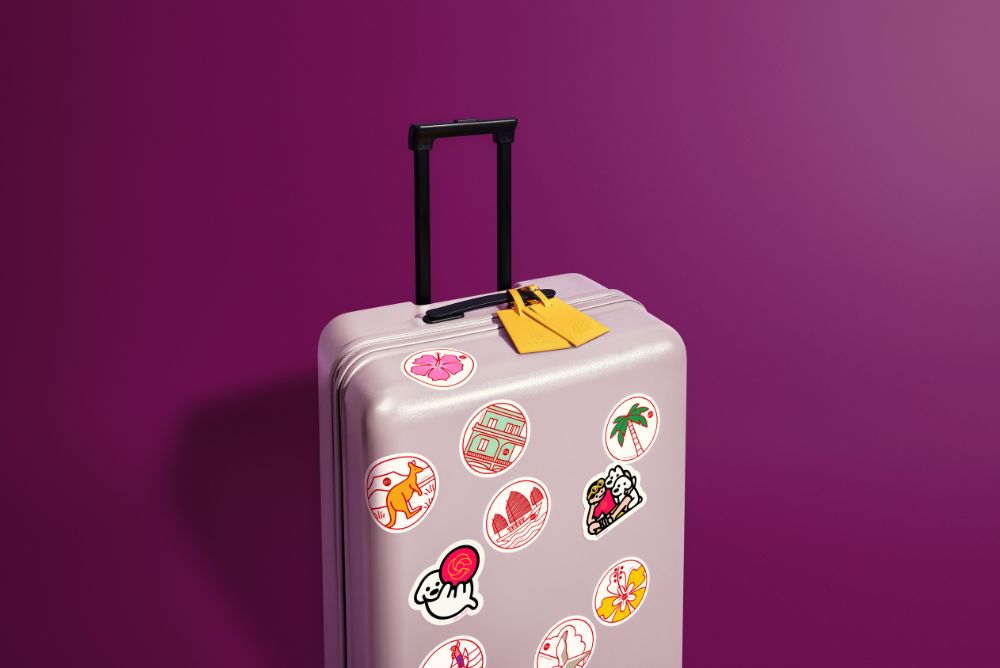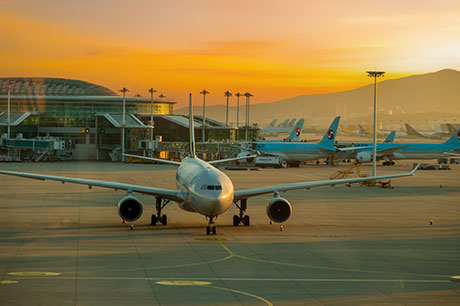UK govt decides on airside alcohol licensing rules
By Luke Barras-hill |
 Airside premises selling alcohol – including bars and shops – at international airports across England and Wales will not be subject to tighter controls after the UK government rejected calls to extend alcohol licensing laws.
Airside premises selling alcohol – including bars and shops – at international airports across England and Wales will not be subject to tighter controls after the UK government rejected calls to extend alcohol licensing laws.
Airlines and other stakeholders had called for restrictions in line with the high street in a bid to curb disruption from intoxicated passengers, but the government pointed to ‘a lack of new evidence’ to lift current exemptions from the Licensing Act 2003.
The government first launched a call for evidence on introducing alcohol licensing airside at international airports in November 2018 in a bid to understand the problem of drunk and disruptive passengers, and the extent to which existing statutory powers are being used to address the issue.
‘LIMITED BENEFIT’ IN EXTENSION
In *responses to the consultation published on Tuesday (14 October), Whitehall concluded there would be ‘limited benefit’ in extending provisions in the act to require premises to obtain a licence.
“The premises which serve alcohol airside operate in a highly secure environment which function in a very different way to high streets and night-time economies across England and Wales,” said Minister for Crime and Policing Kit Malthouse in a statement.
“Many safeguards that can be introduced by a local licensing regime like enhanced security, searches or CCTV are already in place within an airport.”
The government said provisions under the act prohibiting the sale of alcohol to anyone under the age of 18 and purchasing alcohol for anyone under that age apply irrespective of whether the sale is made from a licensed premises or not.
It said there are already penalties in place to tackle drunken passengers, with it being an offence under the Air Navigation Order to be intoxicated on an aircraft and airlines have the powers to prevent boarding.
Airlines UK, the trade body for UK registered airlines, declined to comment when approached by TRBusiness.
The majority of international airports in England and Wales are exempt from licensing laws, arrangements that have been in place for decades.

Fifty-five percent of respondents were against or implied that they were against extending the Licensing Act 2003 to airside premises.
DATA SHARING: ‘SIGNIFICANT IMPROVEMENT’ NEEDED
But in its consultation response, the government acknowledged that data collection and sharing on alcohol-related disruption needed to be ‘significantly improved’.
It said it would work with airlines, airports, the Police and UK Civil Aviation Authority (CAA), the statutory body responsible for regulating safety standards in aviation, to protect air passengers and the public by recording disruptive incidents by severity, including determining whether they are alcohol-related.
Data provided by the CAA on the percentage of ‘disruptive incidents’ that were ‘alcohol-related’ had shown an increase from 19% to 32% from 2013 to 2018.
It is not immediately clear what number of disruptive incidents were alcohol-related in the period leading up to the pandemic in March 2020 and the CAA has been contacted for comment.
 Industry associations including the European Travel Retail Confederation (ETRC) and UK Travel Retail Forum (UKTRF), together with a number of individual airports, retailers and brand members had submitted responses to the government’s call for evidence.
Industry associations including the European Travel Retail Confederation (ETRC) and UK Travel Retail Forum (UKTRF), together with a number of individual airports, retailers and brand members had submitted responses to the government’s call for evidence.
UKTRF and ETRC argued that an extension of the licensing laws, as reported, would apply disproportionate regulatory intervention to address an issue more effectively dealt with by existing and ongoing consumer education initiatives.
The extension of the regulatory regime to airside environments at airports was not appropriate in tackling disruptive passengers, which they said relates to a small number of routes and in limited instances.
“UKTRF welcomes the government’s response to the consultation,” Rachel Bulford, Chair, UKTRF told TRBusiness.
“This is a pragmatic and sensible approach to a shared industry issue that UKTRF and others have been actively working on for a number of years.”
The consultation specifically included a question on whether premises selling alcohol airside contribute towards the issue of drunk and disruptive passengers, with ‘several respondents’ suggesting airside retailers take advantage of the exemption by ‘irresponsibly promoting and selling alcohol’.
It was also suggested that duty free alcohol such as large bottles of spirits offered at discounted prices and 50ml miniatures could be consumed airside or on aircraft and in large quantities without the knowledge of staff.
The UKTRF previously told this publication that as licensing rules fall under the remit of local authorities, it would mean product sales could be restricted during certain hours.
This would have the potentially harmful effect of depriving revenue for retailers from international passengers transferring through the airport at any given time. Indeed, many of these travellers purchase for gifting purposes.

The call for evidence asked the following: ‘To what extent, if any, have drunk and disruptive airline passengers become more of a problem in recent years?’
It is also important to note that retailers such as World Duty Free sell alcohol in sealed bags with clearly affixed labels stating that passengers should not open these until they reach their final destination.
Questions from DF&TR were also raised as to how such as regime would apply to onboard sales.

Rachel Bulford, Chair, UKTRF: “This is a pragmatic and sensible approach to a shared industry issue that UKTRF and others have been actively working on for a number of years.”
HARD WORK CONTINUES
On the issue of disruptive passengers specifically, ETRC and UKTRF has supported the ‘One Too Many’ initiative in the UK, which in the past has produced success such as cutting disruptive incidents at Glasgow Airport by half via its Campus Watch initiative.
“UKTRF has always been clear that there is no room for disruptive or unruly behaviour at any point in the passenger journey,” said Bulford.
“Working across industry is key to addressing the issue of disruptive behaviour, and we have worked closely with the Airport Operators Association, IATA and Airlines UK to deliver this message clearly and consistently through the nationwide One Too Many campaign.
“The campaign has reached millions of UK passengers since its launch in 2018, with a physical presence in over 20 UK airports, targeted social media activity and signage in travel retail stores and food and beverage outlets.”
While the association expressed its pleasure around government praise for the campaign in helping to reduce disruptive passenger numbers, UKTRF says the response to the consultation does not mark the end of the road.
“UKTRF will continue to work with other associations, travel retailers, airports, airlines to communicate with passengers that unruly conduct is never acceptable, and those who are disruptive will face stern consequences,” added Bulford.
*The Home Office received a total of 97 responses to the call for evidence. Among the responses, 12 were from airline respondents (seven from airlines, one from an airline group and four from airlines associations); ten from airport respondents (seven airports, two airport groups and one airport association); and 17 from the alcohol and wider service industry, including three duty and tax free shop operators.
Results showed more than half (55%) were against or implied that they were against extending the act airside; just over one quarter (28%) expressed or implied support for extending the act airside; and less than one fifth (18%) did not take a direct stance.
For the list of respondents and to read the consultation response in full, click here.
For further background on ‘One Too Many’ and the Call for Evidence on Airside Alcohol Licensing at International Airports in England and Wales, click here.
Alcohol insights: Conversion up, spend down in Q4
Conversion of visitors in the alcohol category in duty free has risen to 54% in Q4 2023,...
Men buy and spend more in travel retail says new research by m1nd-set
Men have a higher conversion rate and spend more when shopping in travel retail, says new...
Saudia Arabia's KKIA unfurls T3 duty free expansion
King Khalid International Airport (KKIA) has unveiled the first stage of its much-vaunted duty...
-
 International,
International,Alcohol insights: Conversion up, spend down in Q4
-

-
 International,
International,Saudia Arabia's KKIA unfurls T3 duty free expansion

In the Magazine
TRBusiness Magazine is free to access. Read the latest issue now.

 Trbusiness. The travel retail Trbusiness. The magazine for global retail and duty free professionals.
Trbusiness. The travel retail Trbusiness. The magazine for global retail and duty free professionals.






















